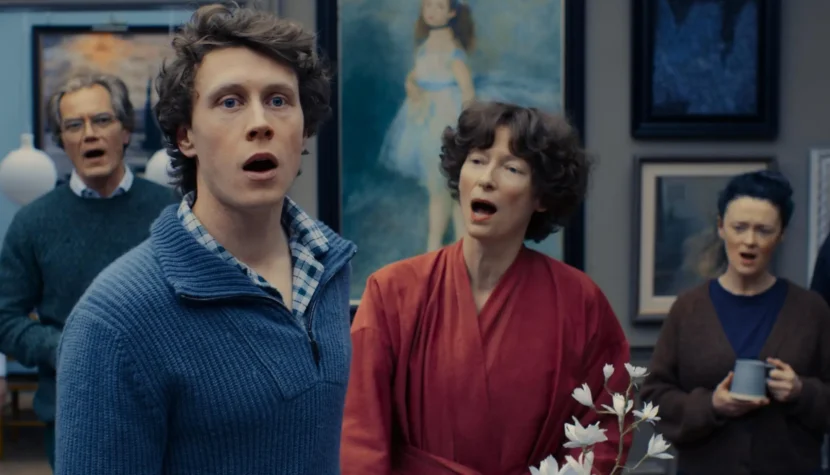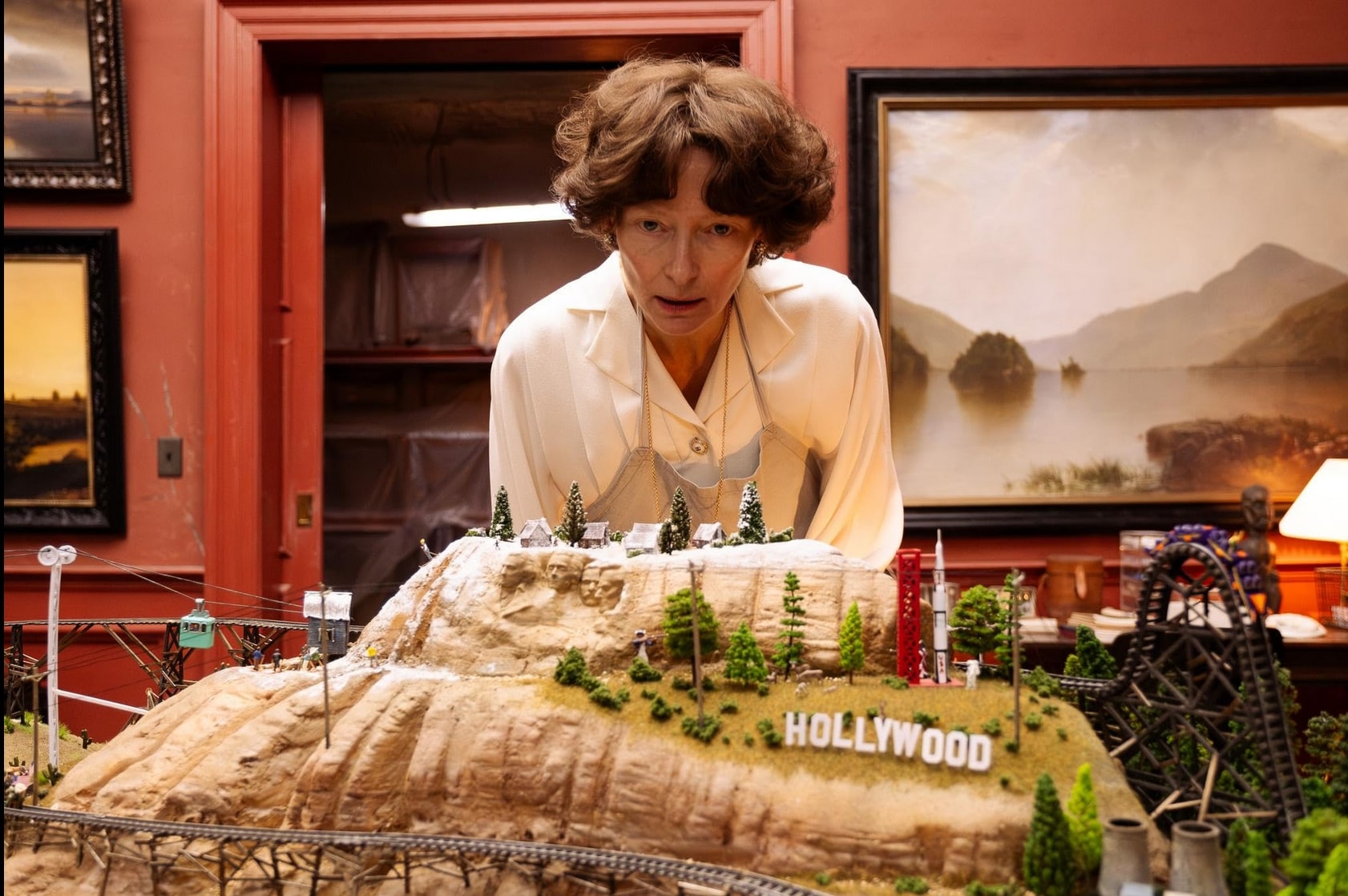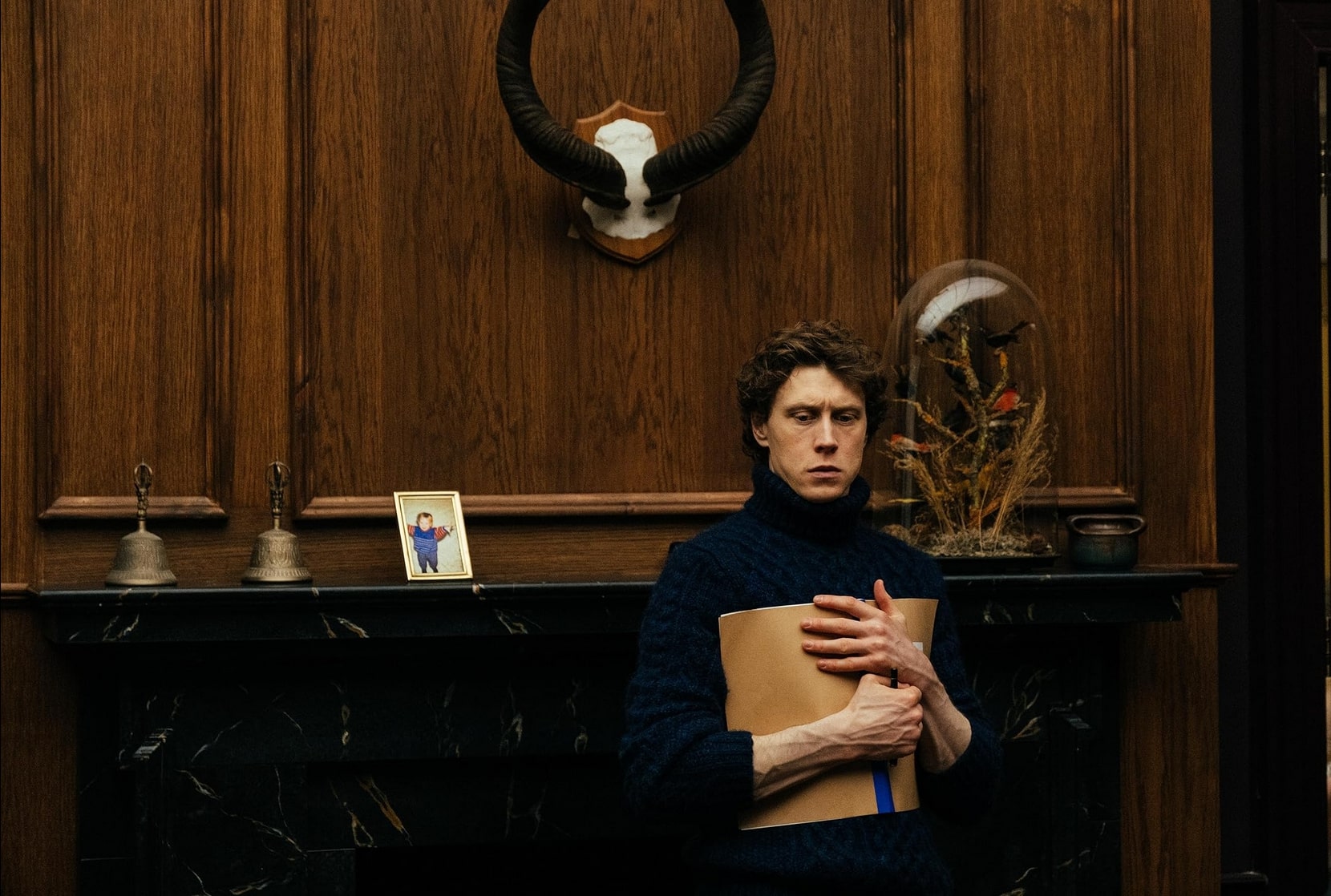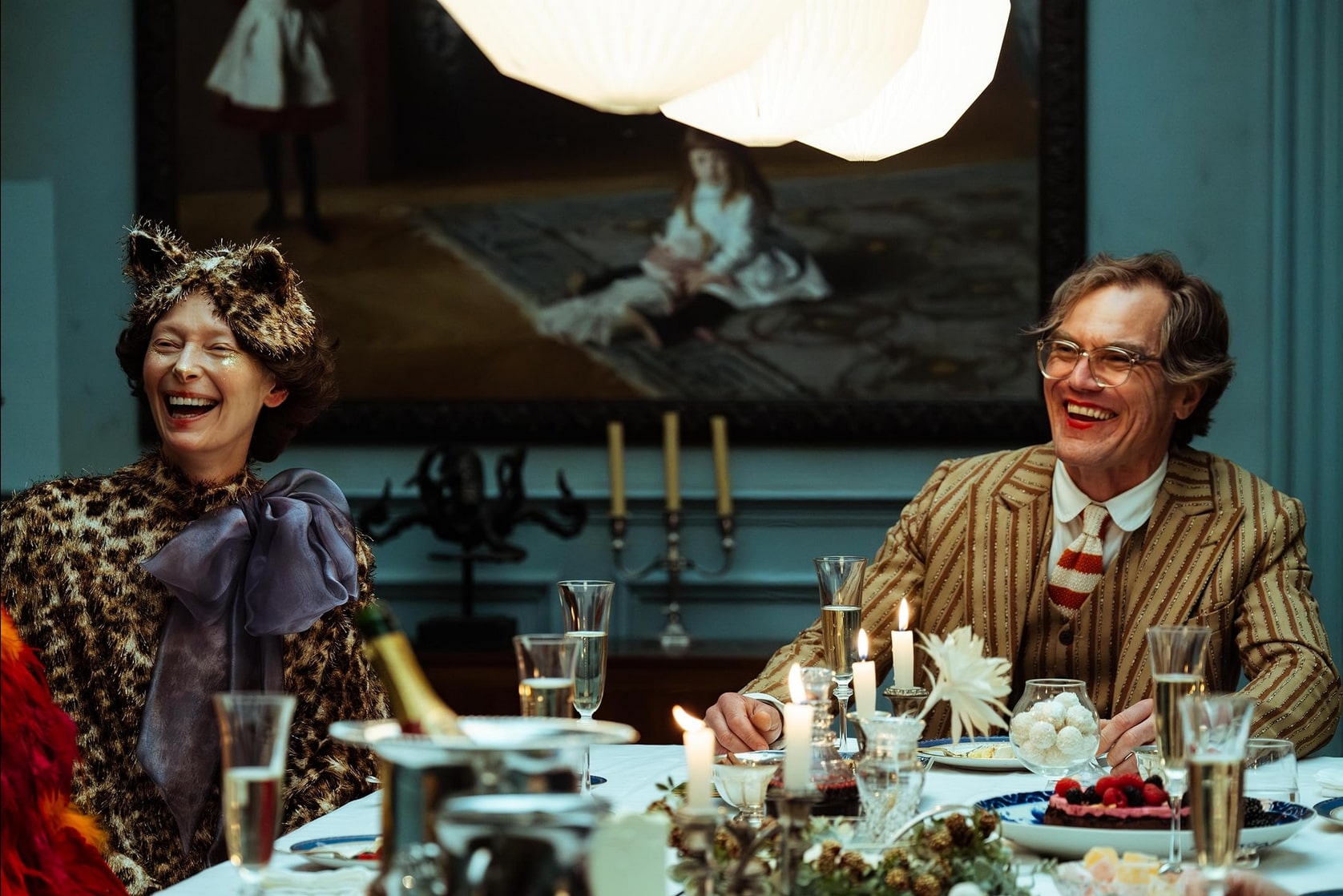THE END: Tilda Swinton Sings About the End of the World [REVIEW]

Joshua Oppenheimer’s new film: where to begin? Perhaps it’s best to start at the end — the film, after all, is titled The End. After two and a half hours of viewing, it doesn’t feel like we know any more than when we began. The dominant emotions evoked by the work of the twice Oscar-nominated documentarian are confusion, accompanied by embarrassment, irritation, impatience, and, with some luck, amusement. This isn’t a crowd-pleaser that captures hearts with a unique vision, nor is it a cinematic punch as impactful as his memorable documentaries about the Indonesian genocide. Instead, it’s an ostentatiously miscalculated, brash, and eccentric film, seemingly trying to alienate its audience. Is it a bad film? Not necessarily.
The premise alone elicited mixed reactions, with my initial response being sheer surprise. Through two remarkable and exceptionally powerful documentaries, The Act of Killing and The Look of Silence, Oppenheimer established himself as a force in the industry. Yet, for his next project, he decided to transition to fiction. Documentarians often venture into fictional filmmaking, sometimes with great success. However, Oppenheimer not only embarked on creating a narrative film but chose two particularly challenging genres for a newcomer. The End is a musical set in a post-apocalyptic world.

This alone makes the project sound somewhat unhinged, but Oppenheimer managed to secure Tilda Swinton, who not only stars but also co-produced the film. The cast includes George MacKay, Michael Shannon, Moses Ingram, Tim McInnerny, Lennie James, and Bronagh Gallagher. The screenplay was co-written with Rasmus Heisterberg (A Royal Affair and The Girl with the Dragon Tattoo), cinematography was handled by Andrey Zvyagintsev’s collaborator Mikhail Krichman, and the music was composed by Marius De Vries (Moulin Rouge!, the Oscar-winning CODA, and A24’s queer musical Dicks: The Musical). It’s safe to say the team was impressive.
Under Oppenheimer’s direction, this ensemble crafted a story set in an underground bunker-complex where a family of a former energy tycoon hides after an unspecified apocalypse (likely climate-related). The family includes the patriarch, his wife (a former Bolshoi ballerina), and their son, who was born in the shelter. Also in residence are a family friend (a prestigious former chef), the family doctor, and a loyal servant. Their structured, almost idyllic life of preserving old-world artifacts, creating models of the lost world, and rehearsing for crises is disrupted when they rescue a barely alive survivor from migration and reluctantly integrate her into their insular existence.
The storyline aside, The End captivates primarily through its style. A meticulously designed, sterile space replicating the pre-apocalyptic opulence of the wealthy becomes a stage for musical numbers. Characters break into song to express their thoughts and emotions in a stereotypical “stop everything and sing” fashion. However, the execution of these musical sequences is questionable. The cast clearly wasn’t chosen for their vocal talents, and every song has moments where at least one actor’s voice falters so noticeably it borders on comedic. Additionally, the songs themselves, often clichéd and pretentious, make for an awkward fit. Combined with a fairly conventional survival story, the film becomes an almost indigestible blend at its overlong runtime.

Before declaring The End a spectacular failure in narrative filmmaking, it’s worth considering the intent behind it. The film is so flawed that it’s hard to believe such a high-caliber team could produce something so inept by accident. Early in the viewing experience, one begins to suspect this isn’t meant to be taken at face value. The End seems to be an advanced, radical satire, mocking traditional portrayals of post-apocalyptic life. The film’s contrived dialogue about survival, adaptation, and family bonds, set against a pretentious imitation of capitalist opulence, feels deliberately off-key.
In this sense, The End shares a subversive kinship with Oppenheimer’s documentaries, where the horrors of genocide were framed in shockingly incongruous forms, such as nostalgic reenactments. A musical about a family after the apocalypse is, in a way, a similar intellectual provocation, highlighting the absurdity of clinging to notions of idyllic life (symbolized here by the joyful musical format) in the face of self-inflicted catastrophe. The director seems to ask: after we devastate the planet through climate wars and the pursuit of GDP growth, will we still insist that family rituals and comfortable routines are the pillars of existence?

The tools Oppenheimer uses to explore humanity’s condition in crisis are undeniably contentious. The satirical format is exhausting, and in many places, the film cries out for more dynamism or a sharper counterpoint. While the aim may be to provoke discomfort and irritation at the folly on display, the film’s critical potential risks being lost amid its self-indulgent excesses. Many viewers won’t ponder the deeper meaning behind the film’s pretentiousness; they’ll simply dismiss it as an ambitious failure.
Paradoxically, in attempting to critique elitism and complacency, Oppenheimer himself falls into the trap of elitism. Rather than shattering complacency with a powerful vision, he creates a “gallery piece” better suited to theoretical analysis than actual enjoyment. Most viewers won’t have the patience for diagrams explaining its meaning—because, after the apocalypse, who will care whether this overwrought, painfully off-key musical had a deeper message?

